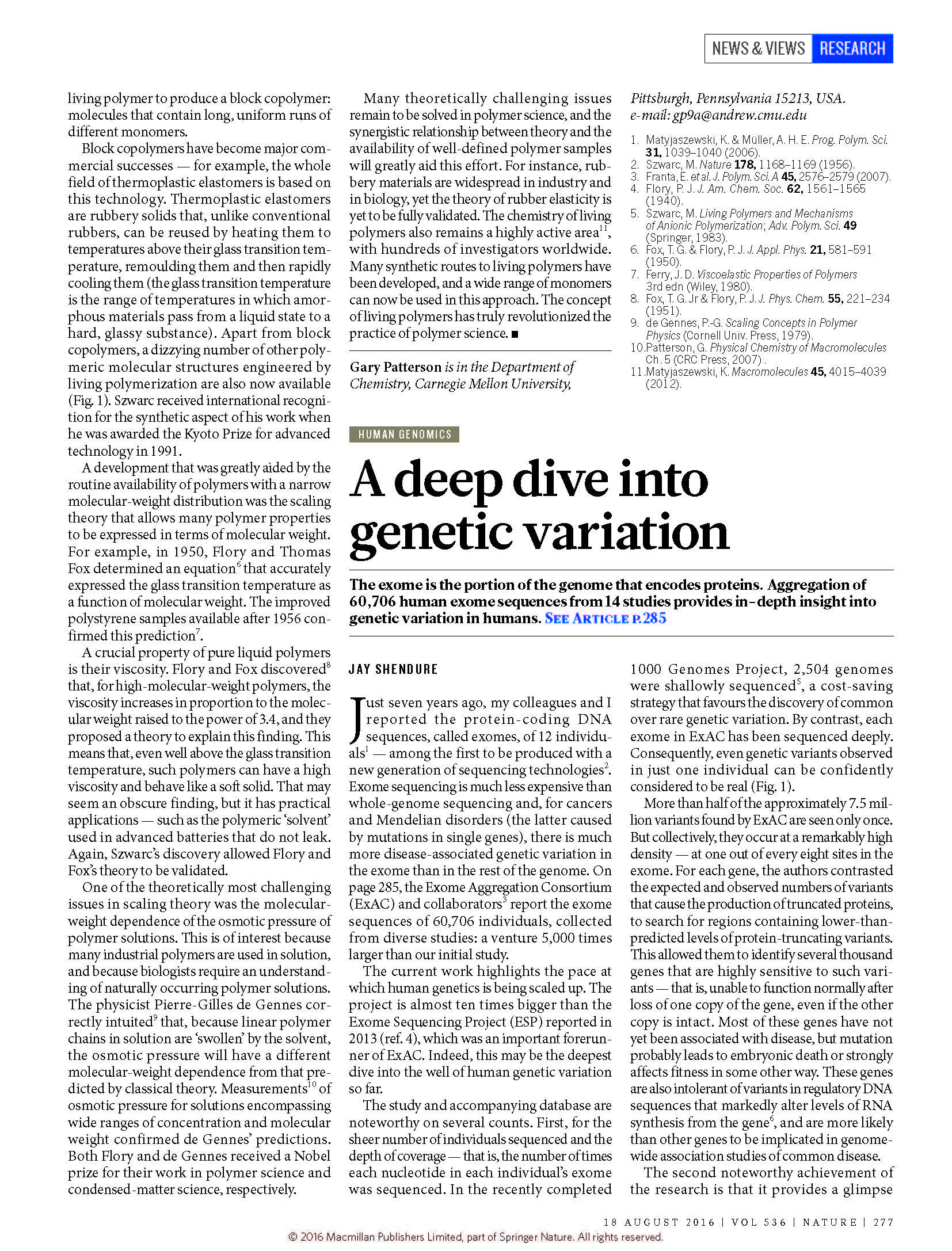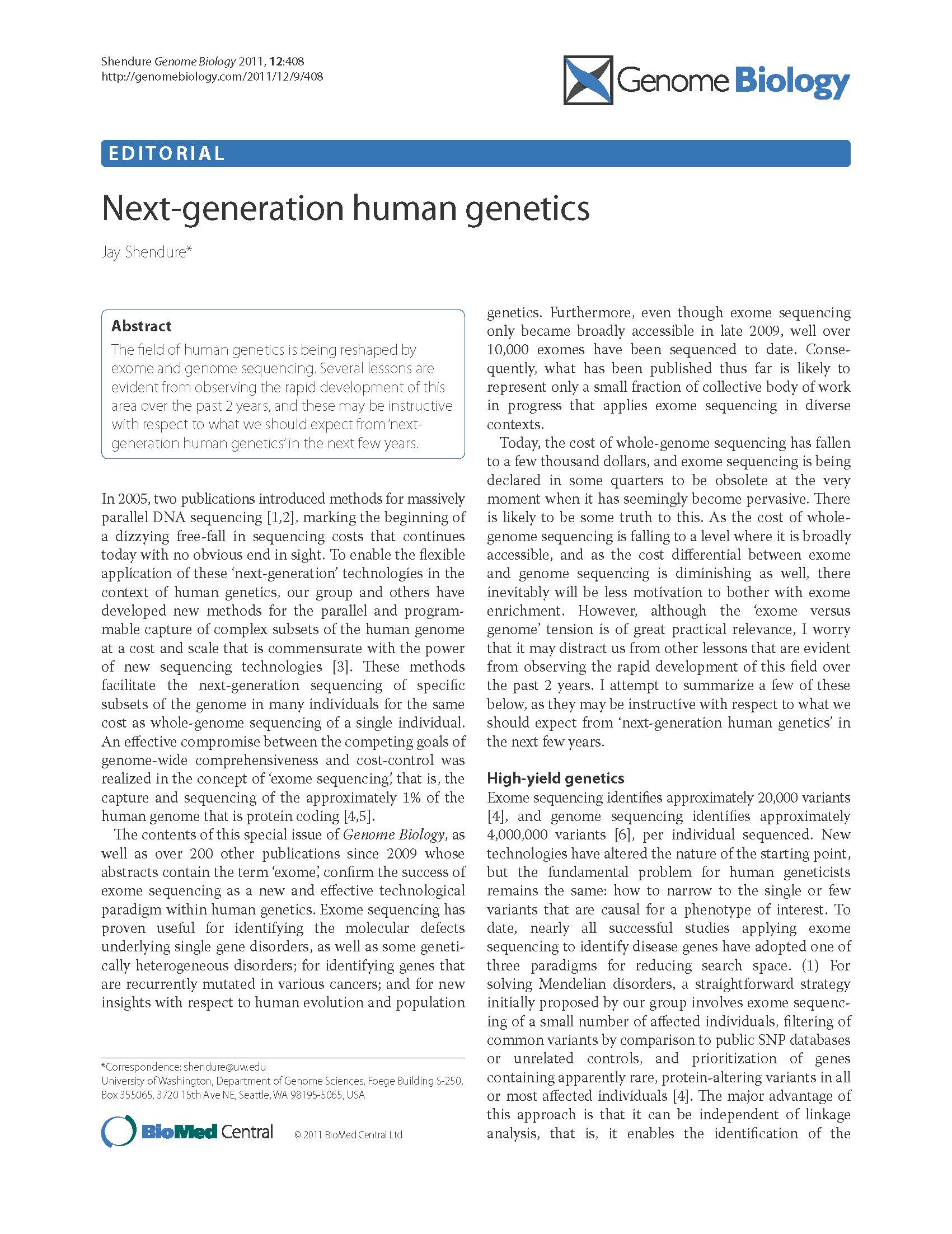genetic basis of human disease (selected publications)
.png)
Simeonov et al. Single-cell lineage tracing of metastatic cancer reveals selection of hybrid EMT states. Cancer Cell (2021)
PMID: 34115987
(with Lengner and McKenna Labs)
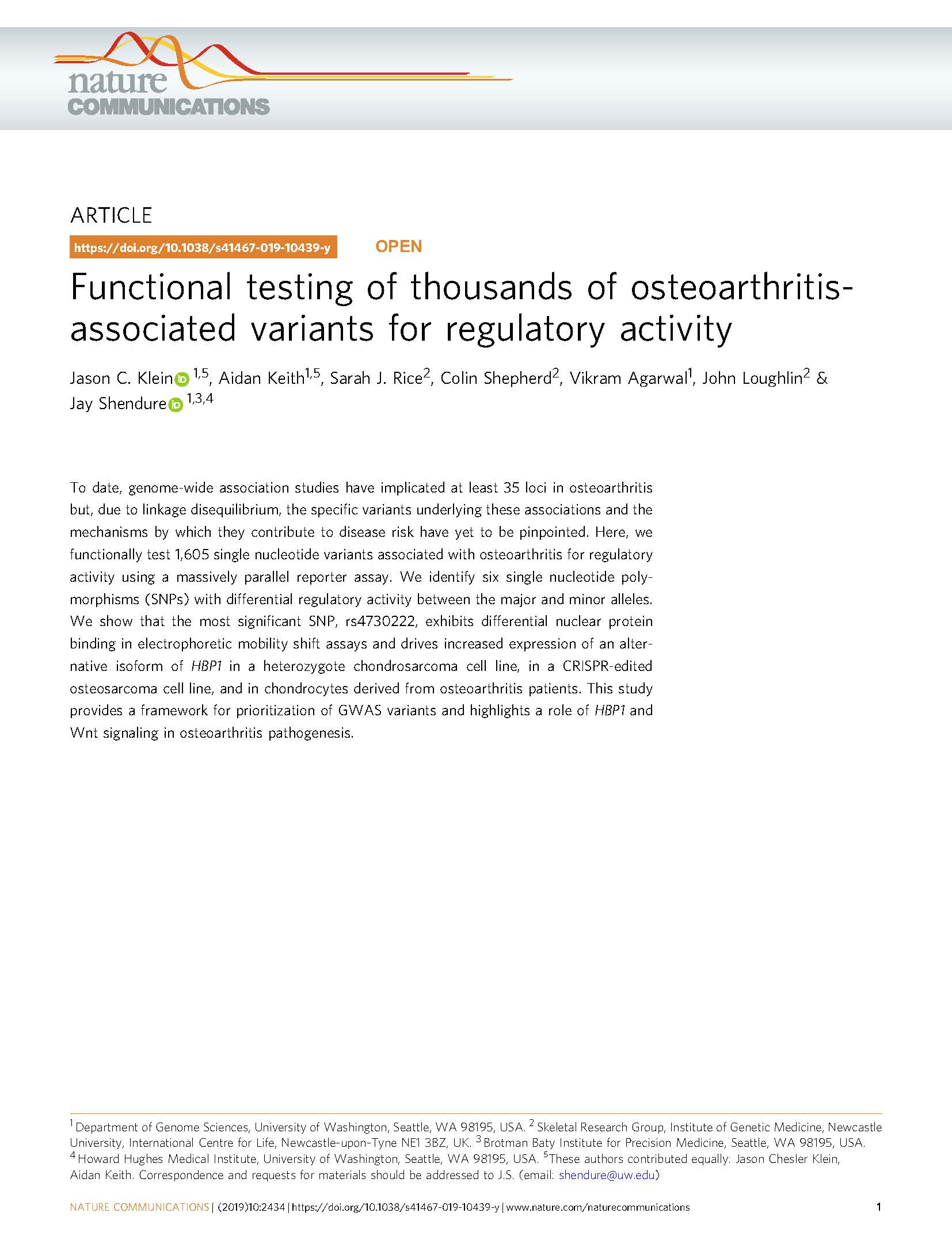
Klein et al. Functional testing of thousands of osteoarthritis-associated variants for regulatory activity. Nature Communications (2019)
PMID: 31164647
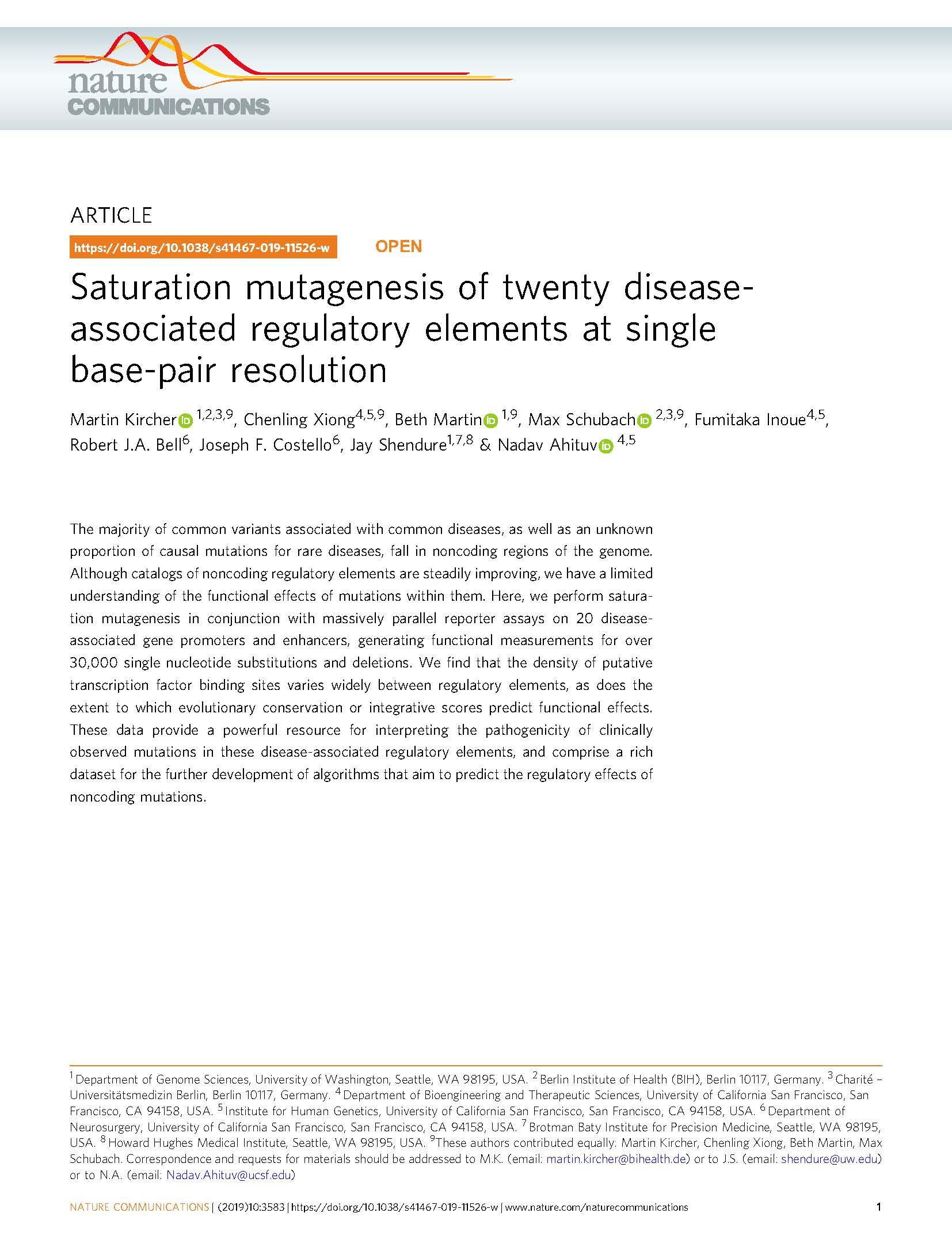
Kircher, Xiong, Martin, Schubach et al. Saturation mutagenesis of twenty disease-associated regulatory elements at single base-pair resolution. (2019)
PMID: 31395865
(with Ahituv and Kircher Labs)
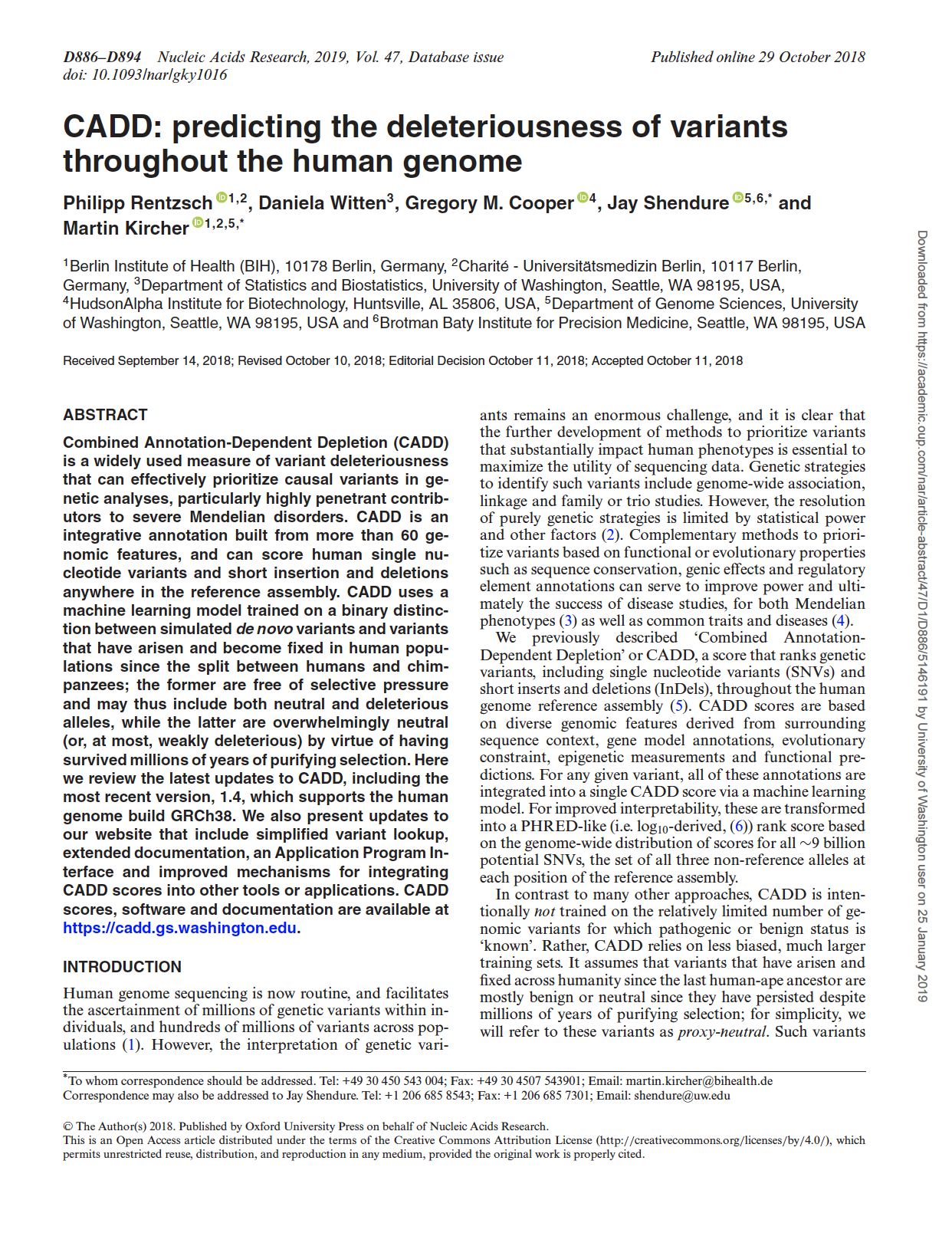
Rentzsch et al. CADD: predicting the deleteriousness of variants throughout the human genome. Nucleic Acids Research (2019)
PMID: 30371827
(with Kircher Lab)
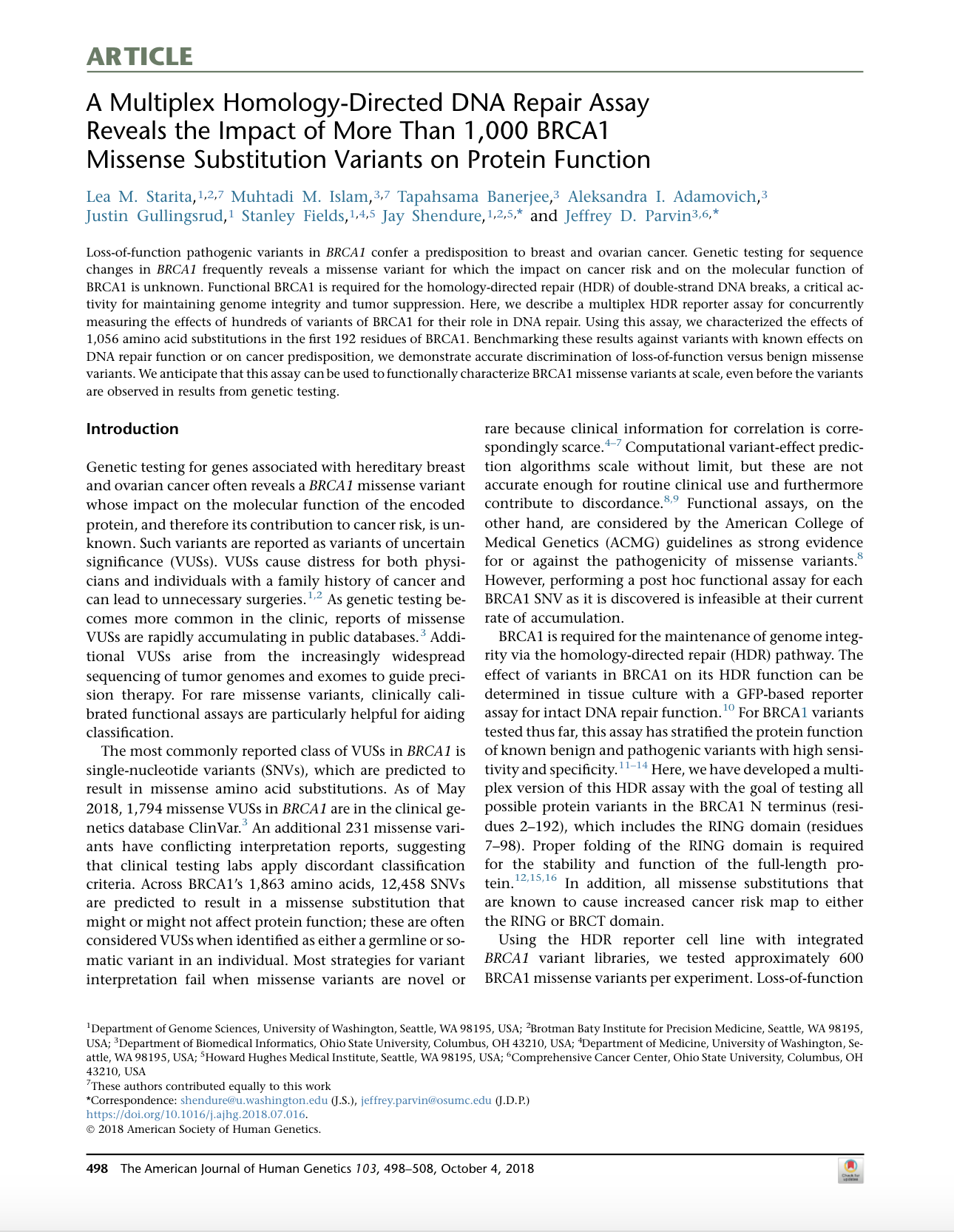
Starita et al. A Multiplex Homology-Directed DNA Repair Assay Reveals the Impact of More Than 1,000 BRCA1 Missense Substitution Variants on Protein Function. AJHG (2018)
PMID: 30219179
(with Parvin Lab)
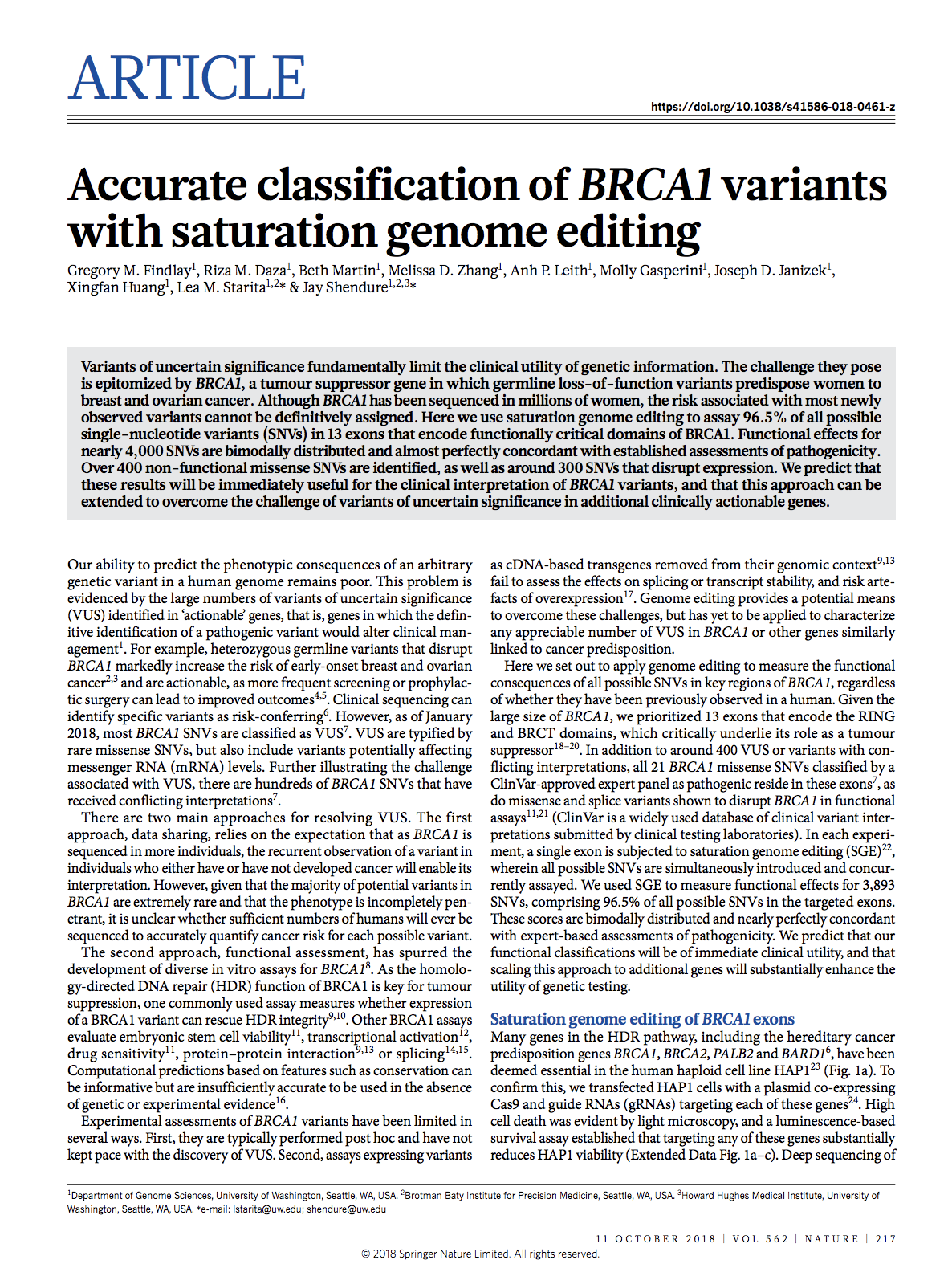
Findlay et al. Accurate classification of BRCA1 variants with saturation genome editing. Nature (2018)
PMID: 30209399
(with Starita Lab)
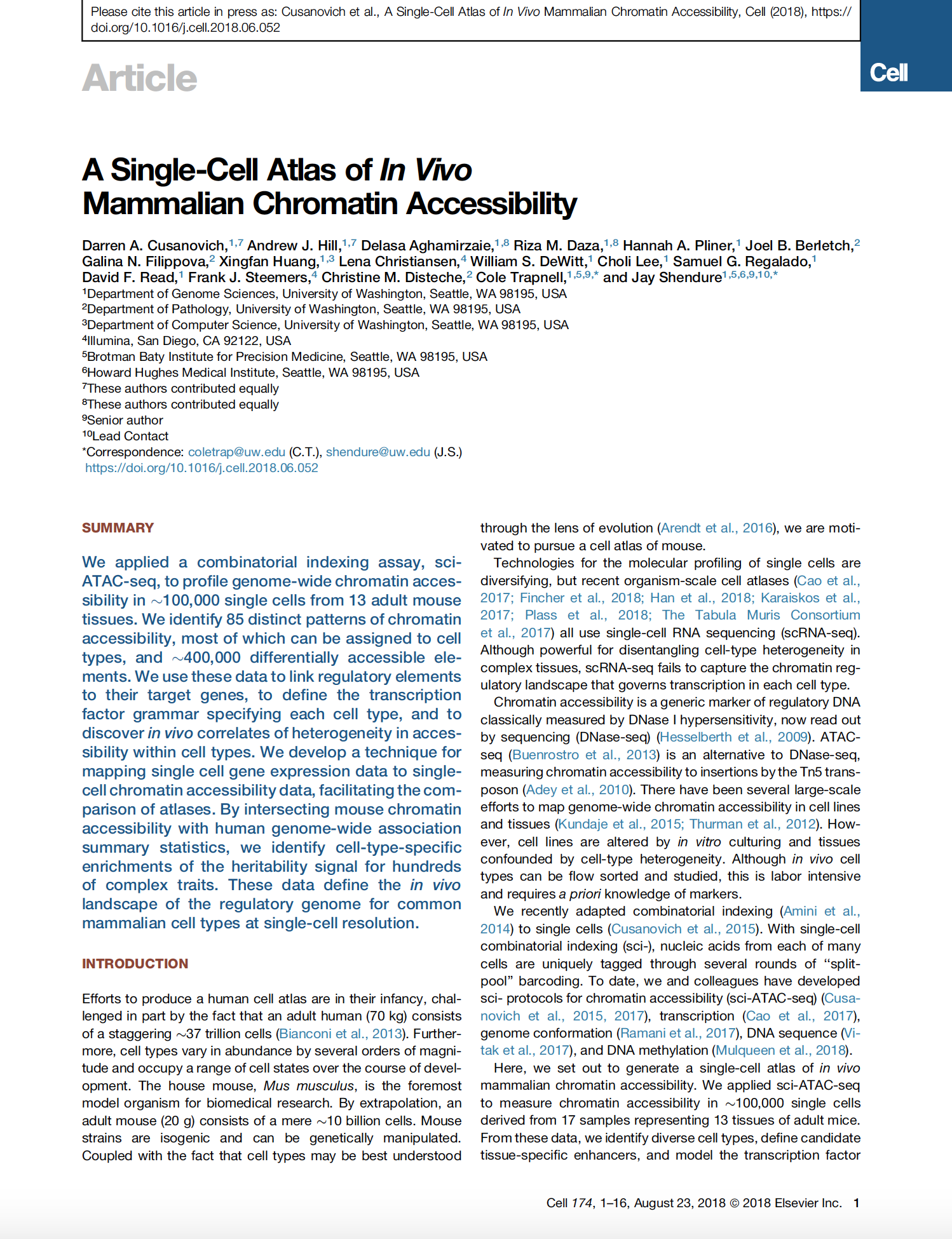
Cusanovich, Hill et al. A Single-Cell Atlas of In Vivo Mammalian Chromatin Accessibility. Cell (2018)
PMID: 30078704
(with Trapnell Lab)
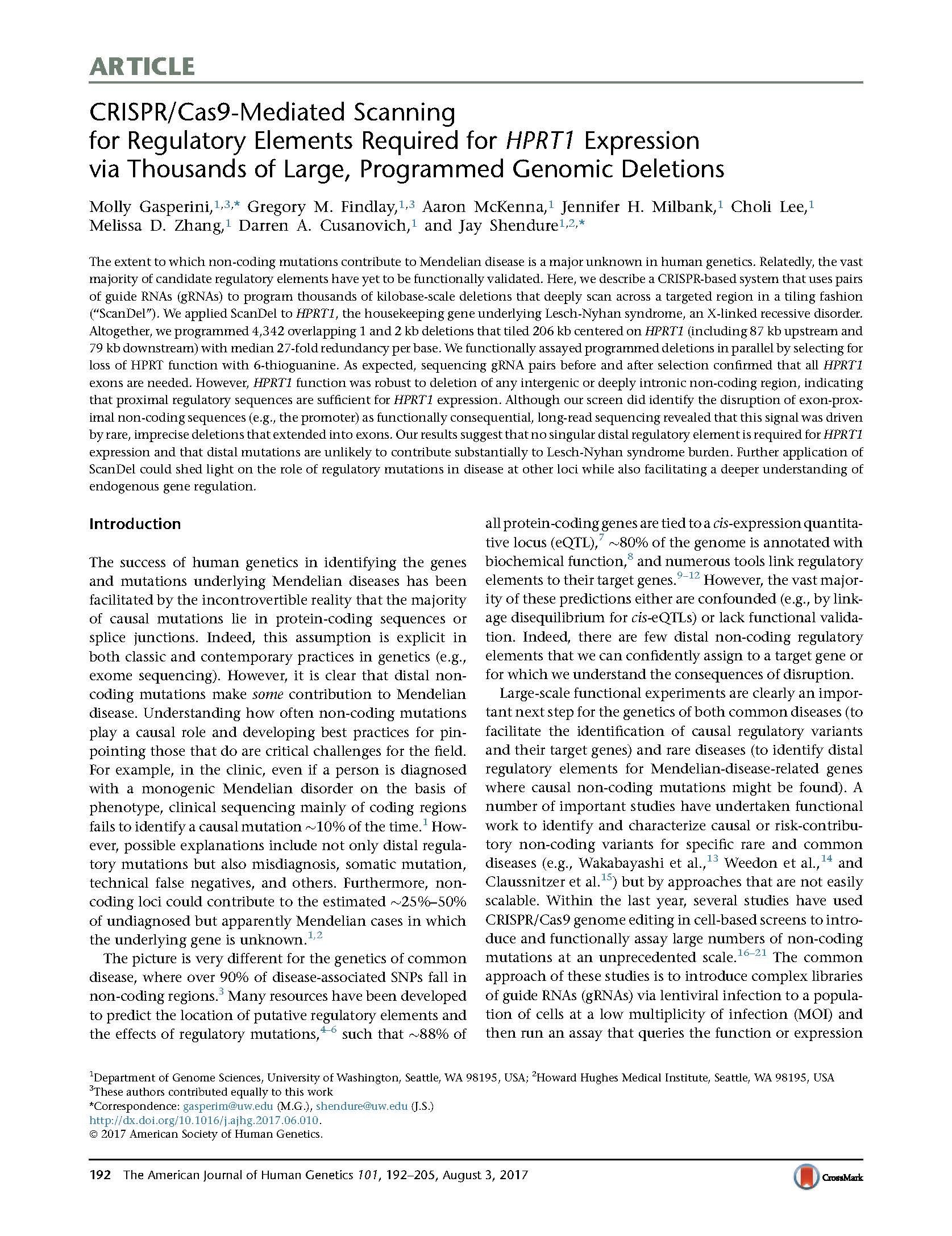
Gasperini, Findlay et al. CRISPR/Cas9-Mediated Scanning for Regulatory Elements Required for HPRT1 Expression via Thousands of Large, Programmed Genomic Deletions. AJHG (2017)
PMID: 28712454
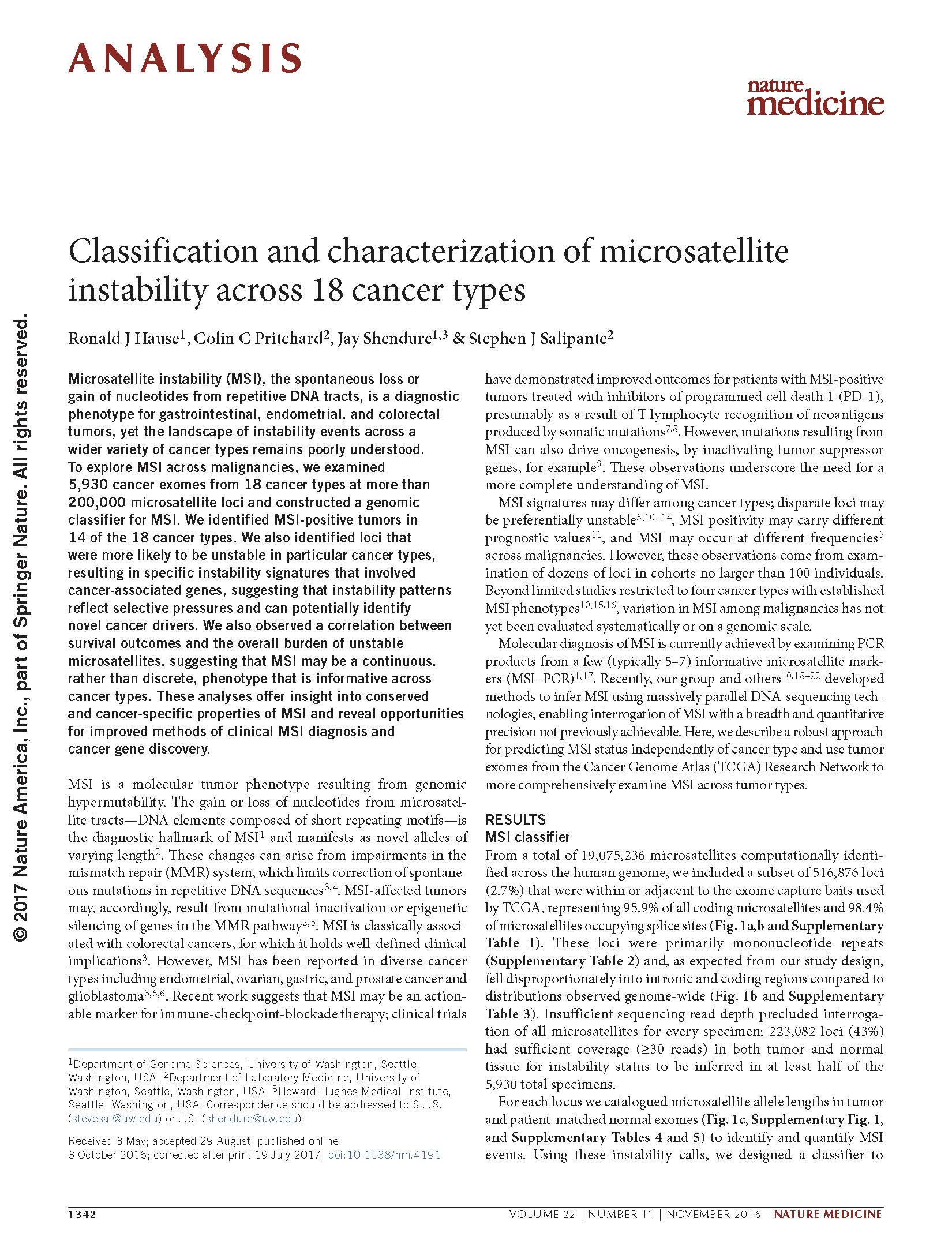
Hause et al. Classification and characterization of microsatellite instability across 18 cancer types. Nature Medicine (2016)
PMID: 27694933
(with Salipante Lab)
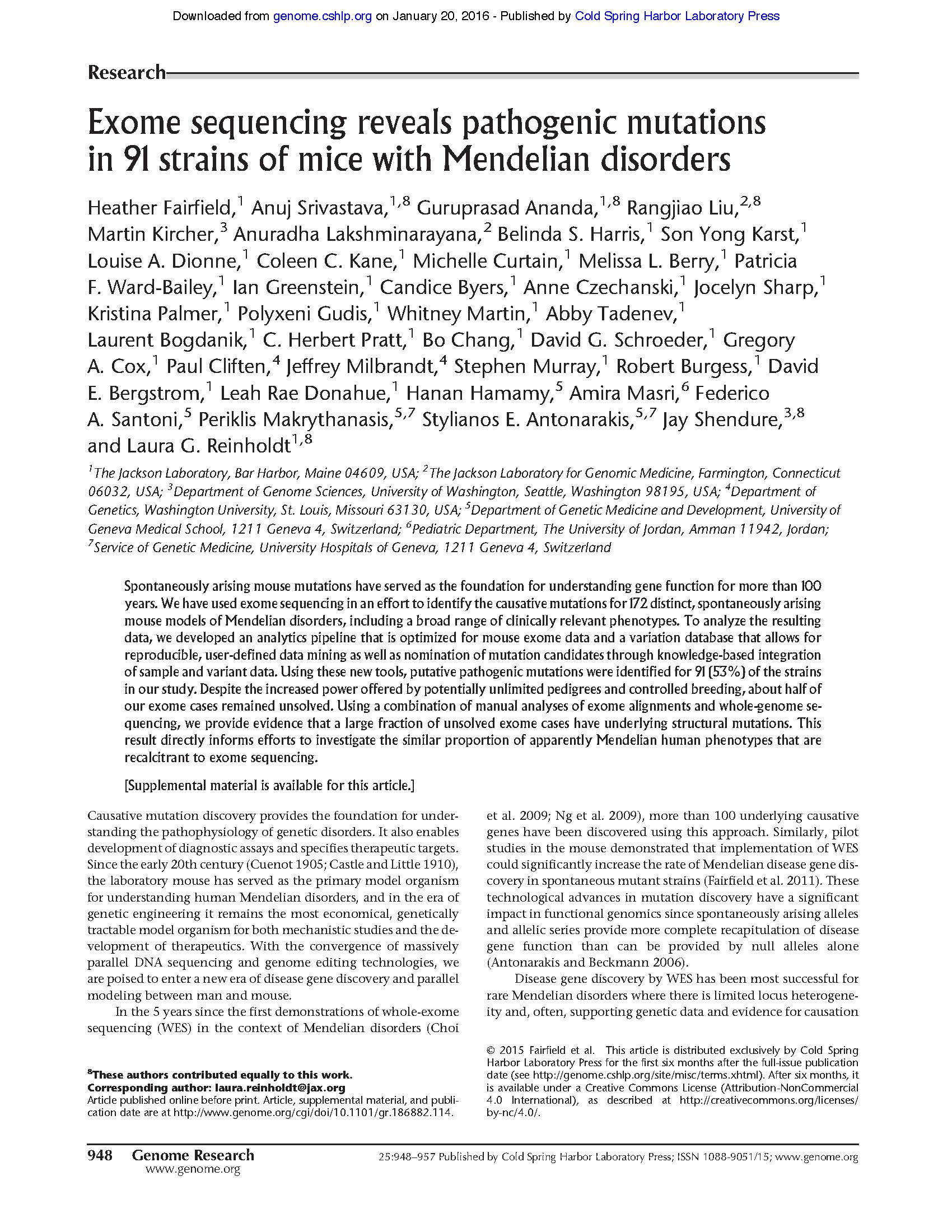
Fairfield, Srivatsava, Ananda, Liu et al. Exome sequencing reveals pathogenic mutations in 91 strains of mice with Mendelian disorders. Genome Research (2015)
PMID: 25917818
(with Reinholdt Lab)
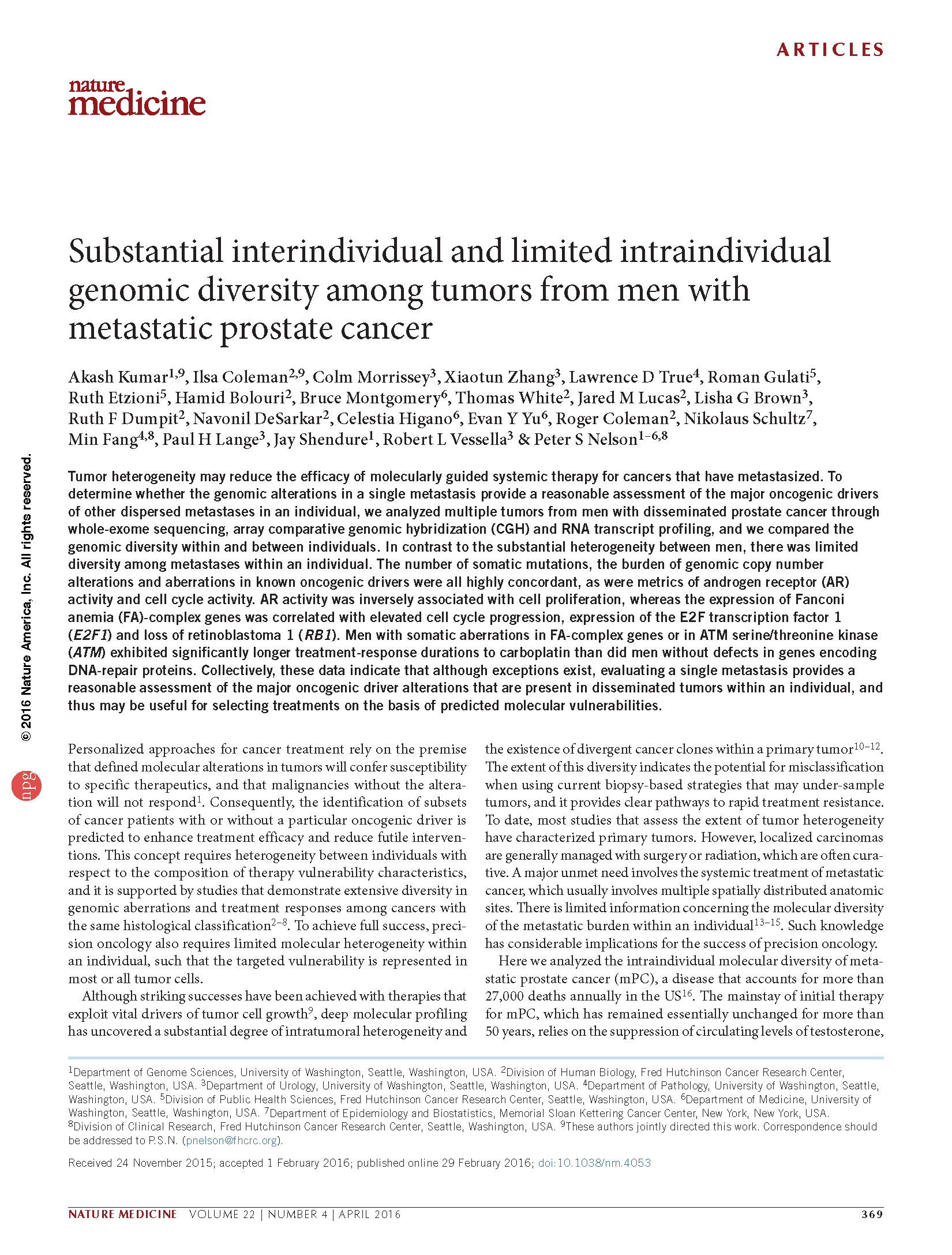
Kumar, Coleman et al. Substantial interindividual and limited intraindividual genomic diversity among tumors from men with metastatic prostate cancer. Nature Medicine (2016)
PMID: 26928463
(with Nelson Lab)
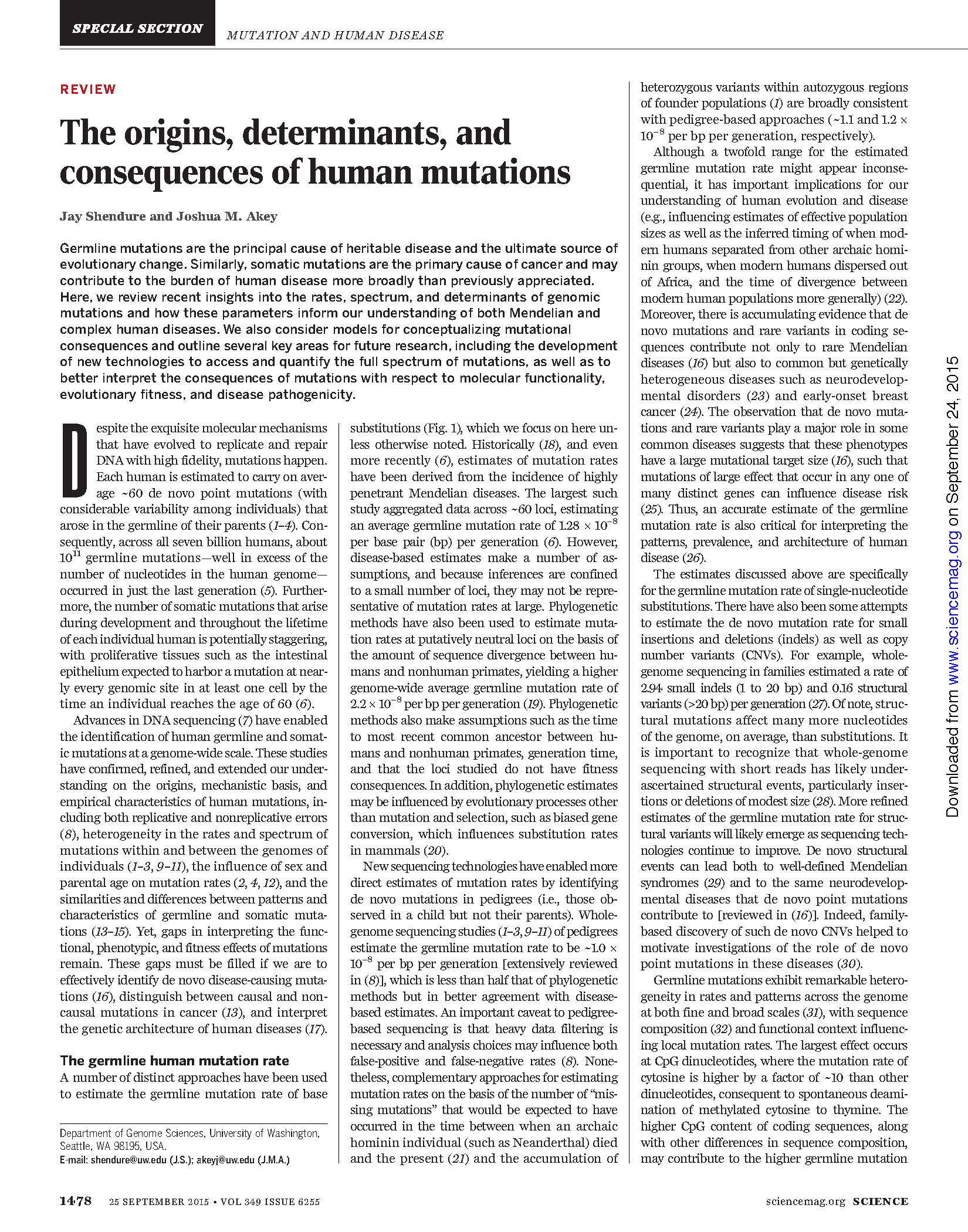
Shendure, Akey. The origins, determinants, and consequences of human mutations. Science (2015)
PMID: 26404824
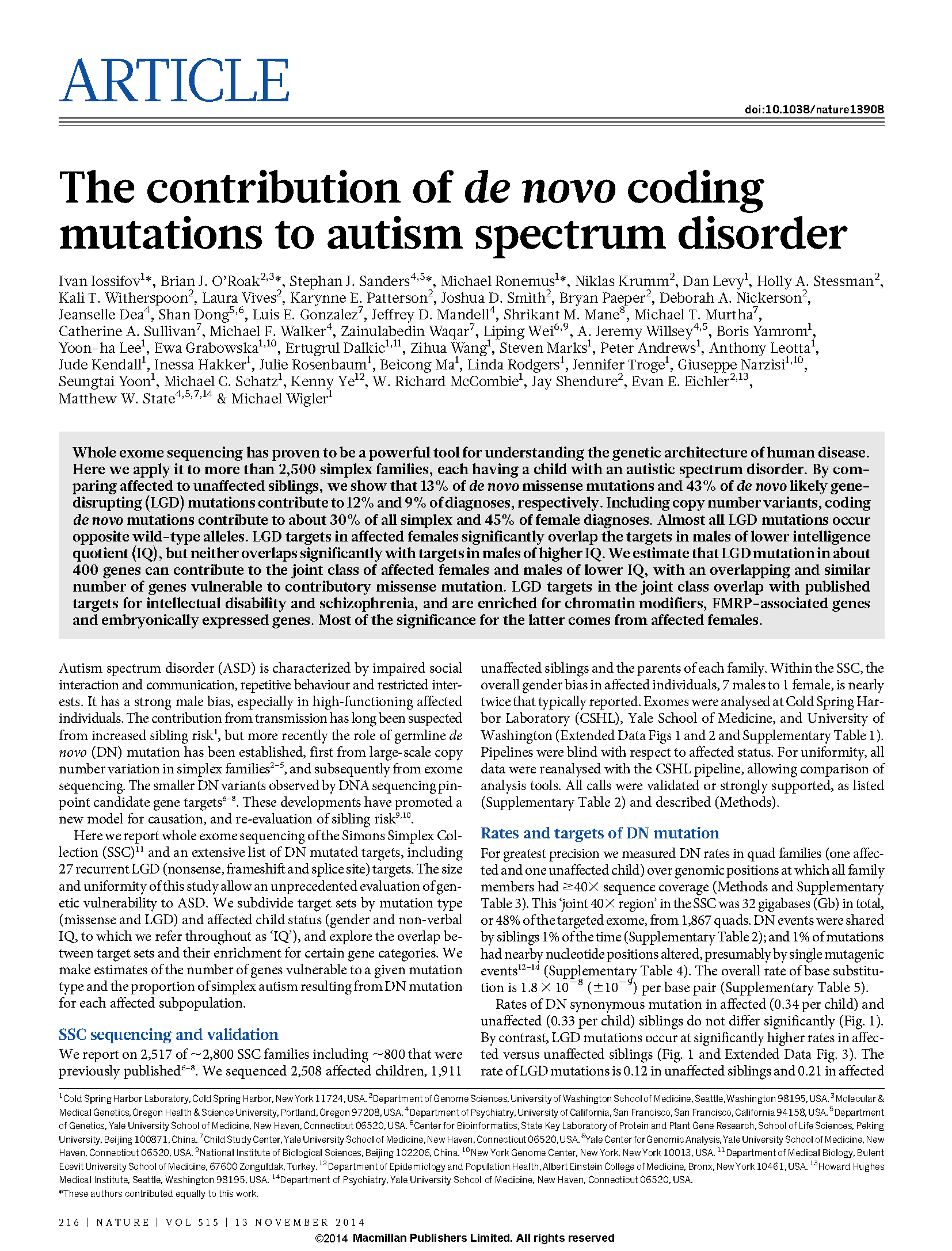
Iossifov, O'Roak, Sanders, Ronemus et al. The contribution of de novo coding mutations to autism spectrum disorder. Nature (2014)
PMID: 25363768
(with Wigler, State and Eichler Labs)
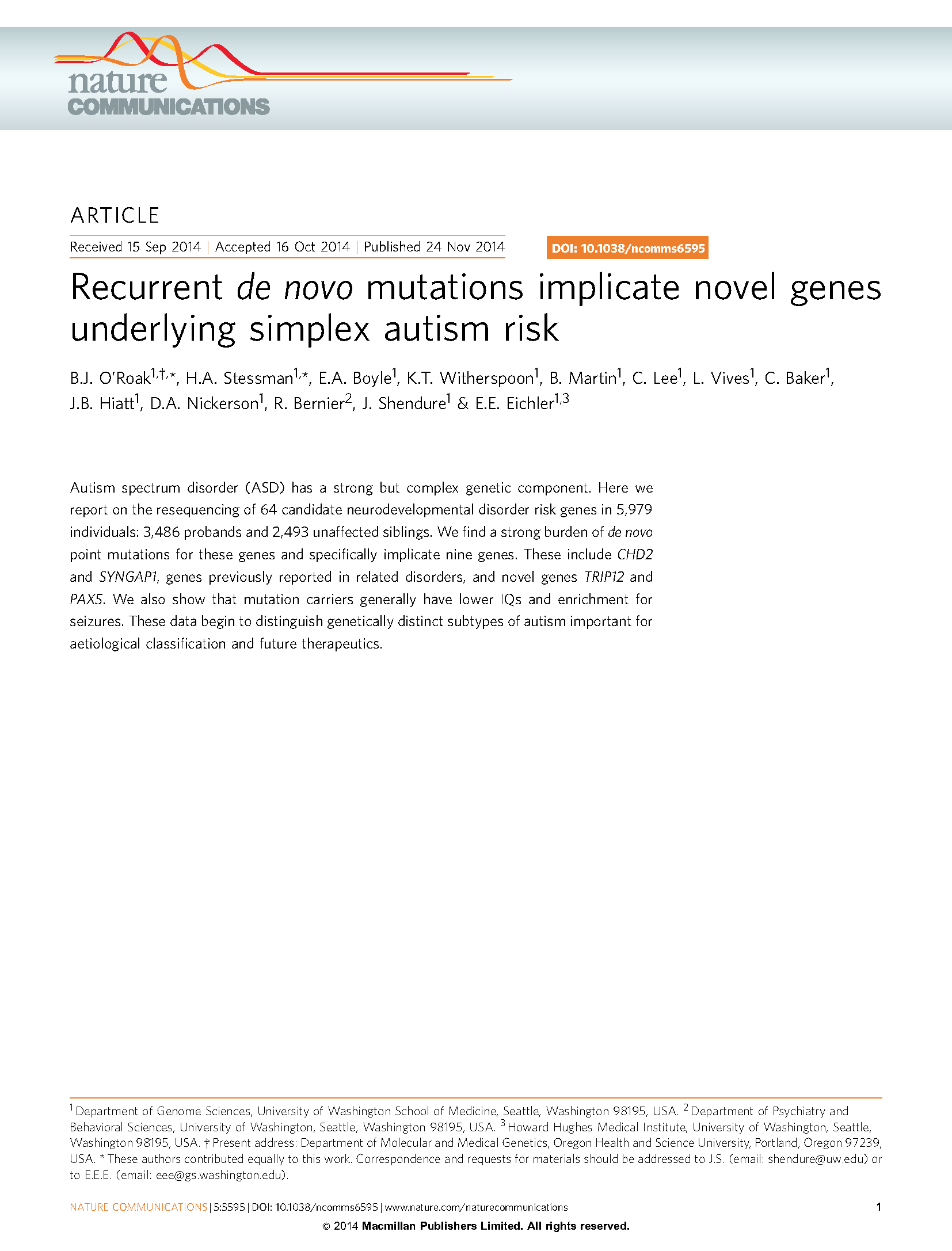
O'Roak, Stessman et al. Recurrent de novo mutations implicate novel genes underlying simplex autism risk. Nature Communications (2014)
PMID: 25418537
(with Eichler Lab)
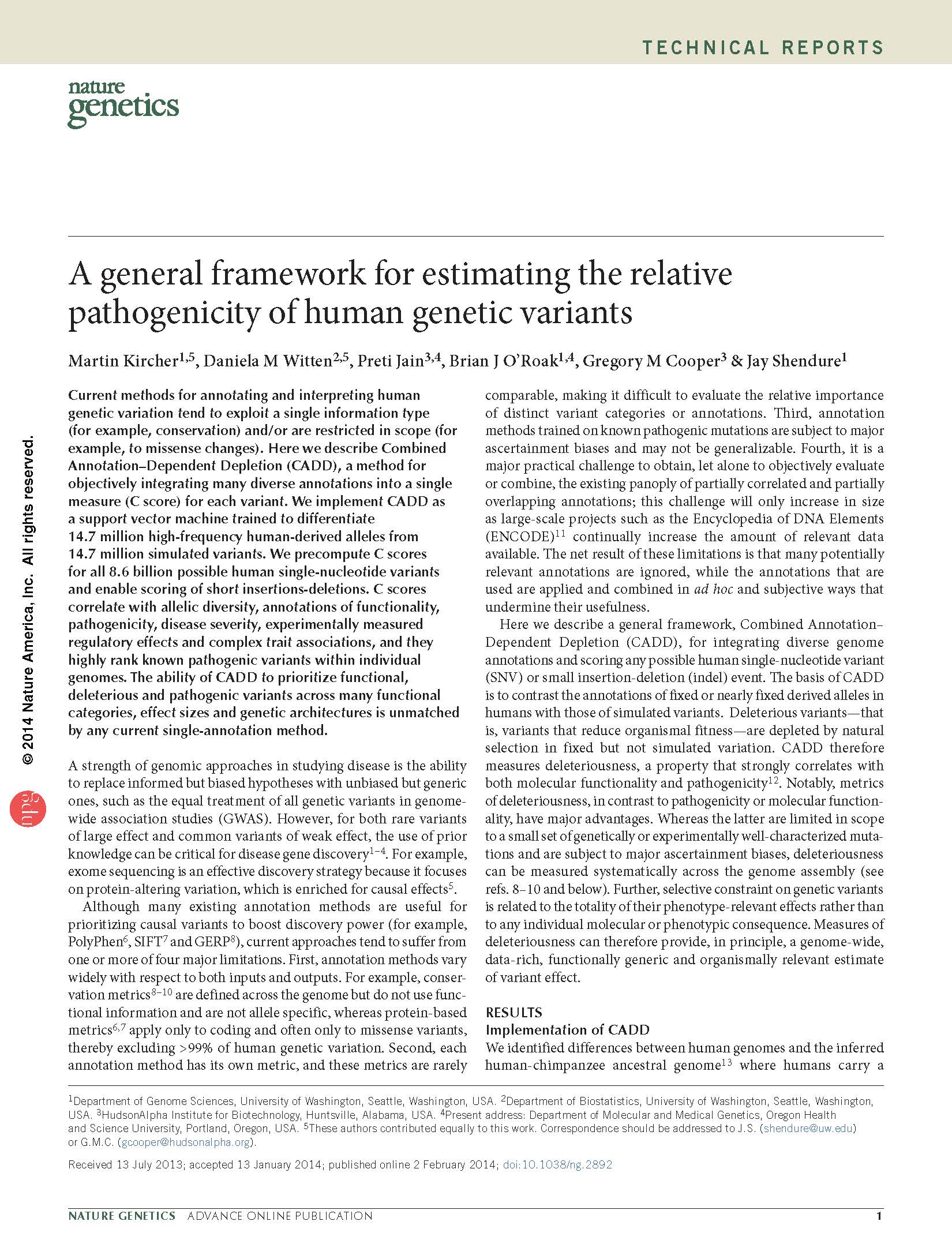
Kircher, Witten et al. A general framework for estimating the relative pathogenicity of human genetic variants. Nature Genetics (2014)
PMID: 24487276
(with Cooper Lab)
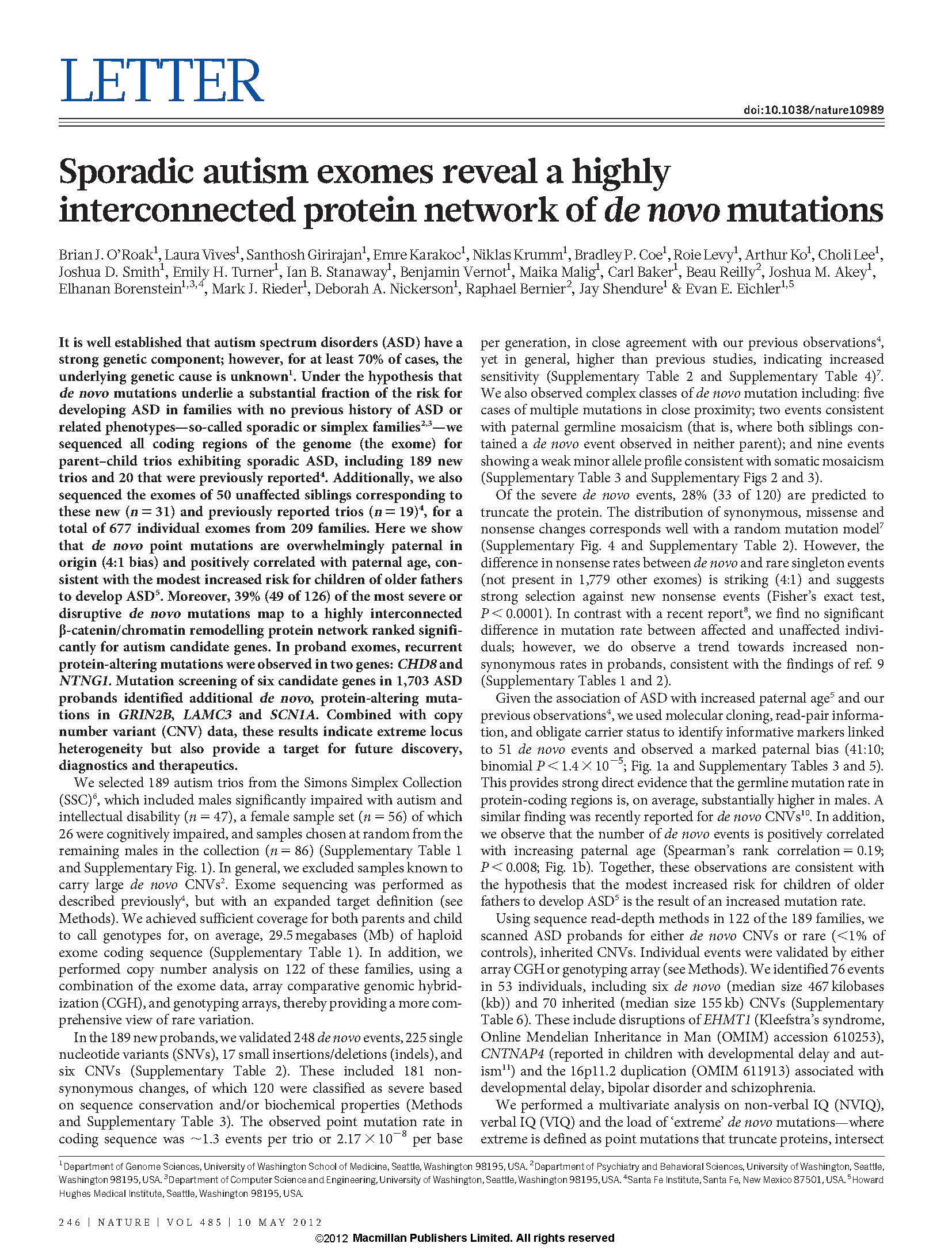
O'Roak et al. Sporadic autism exomes reveal a highly interconnected protein network of de novo mutations. Nature (2012)
PMID: 22495309
(with Eichler Lab)
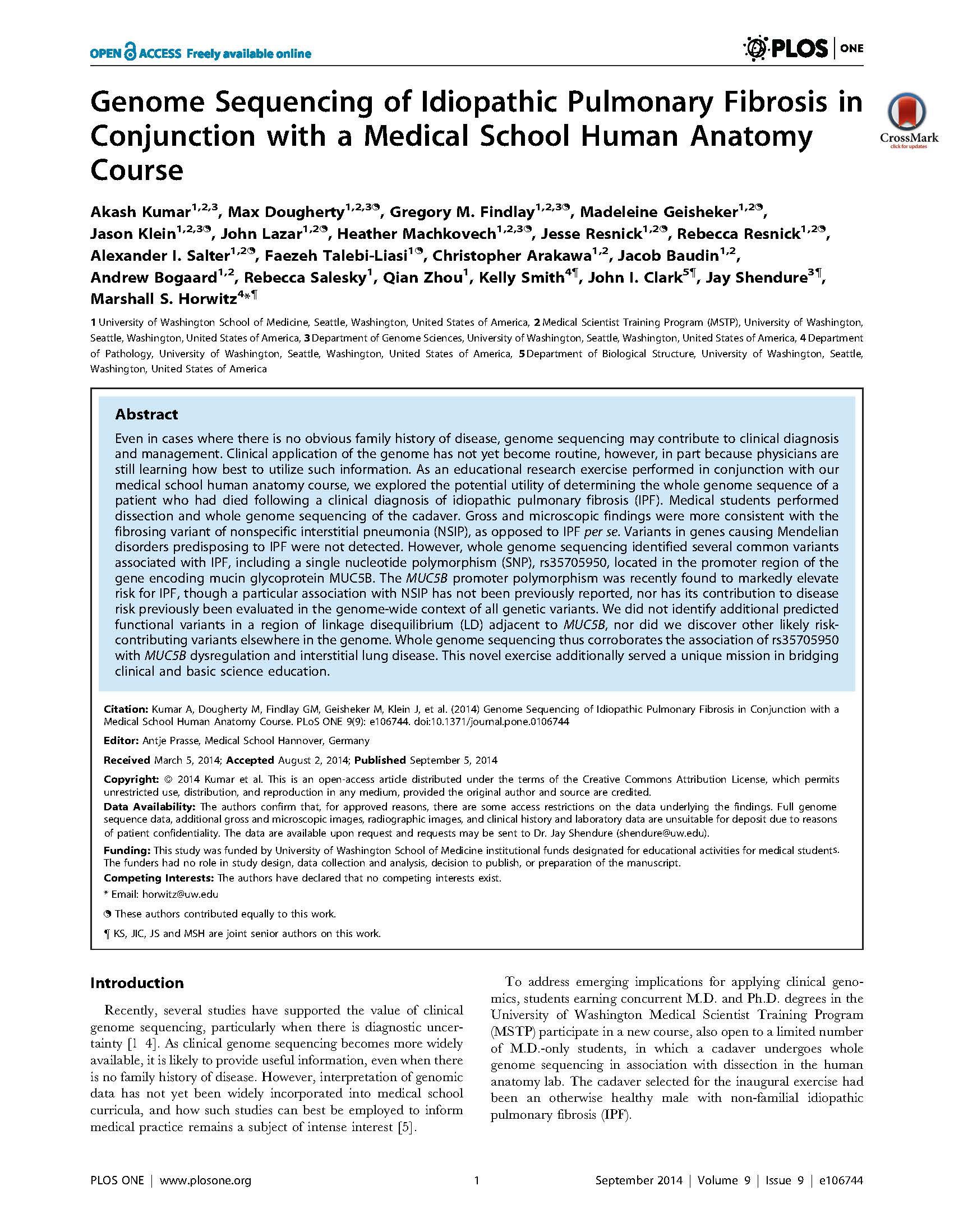
Kumar et al. Genome sequencing of idiopathic pulmonary fibrosis in conjunction with a medical school human anatomy course. PLoS One (2014)
PMID: 25192356
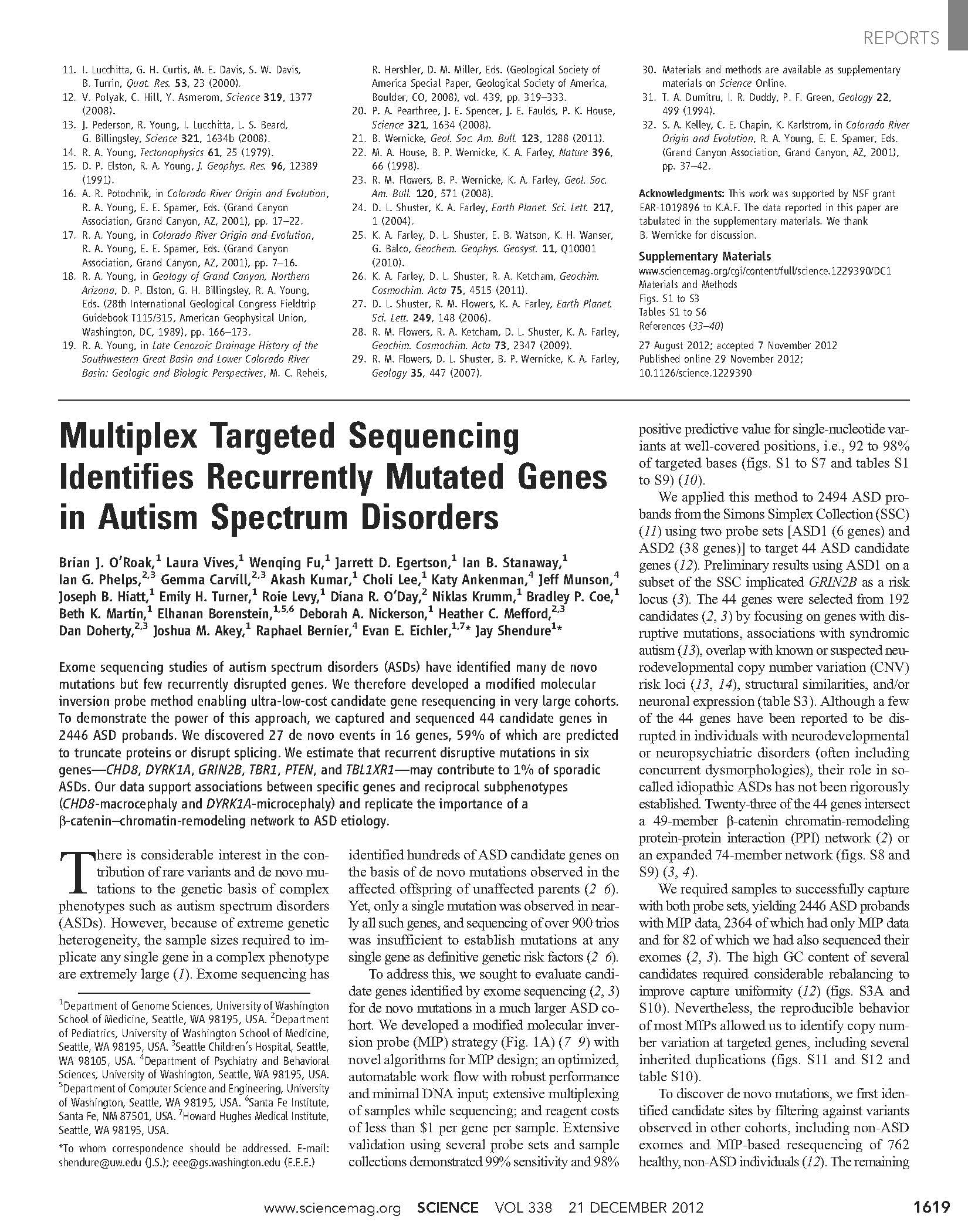
O'Roak et al. Multiplex Targeted Sequencing Identifies Recurrently Mutated Genes in Autism Spectrum Disorders. Science (2012)
PMID: 23160955
(with Eichler Lab)
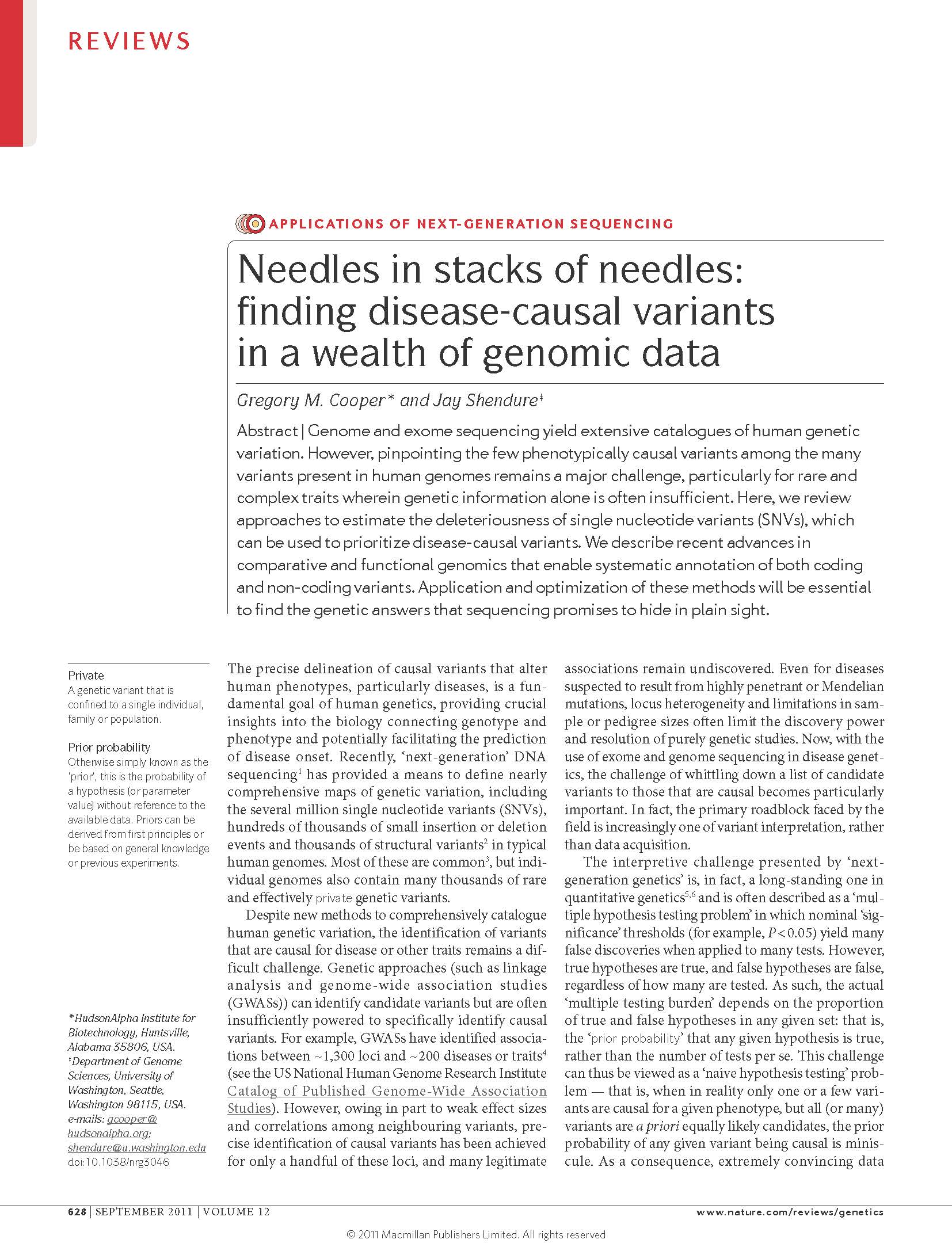
Cooper, Shendure. Needles in stacks of needles: finding disease-causal variants in a wealth of genomic data. Nature Reviews Genetics (2011)
PMID: 21850043
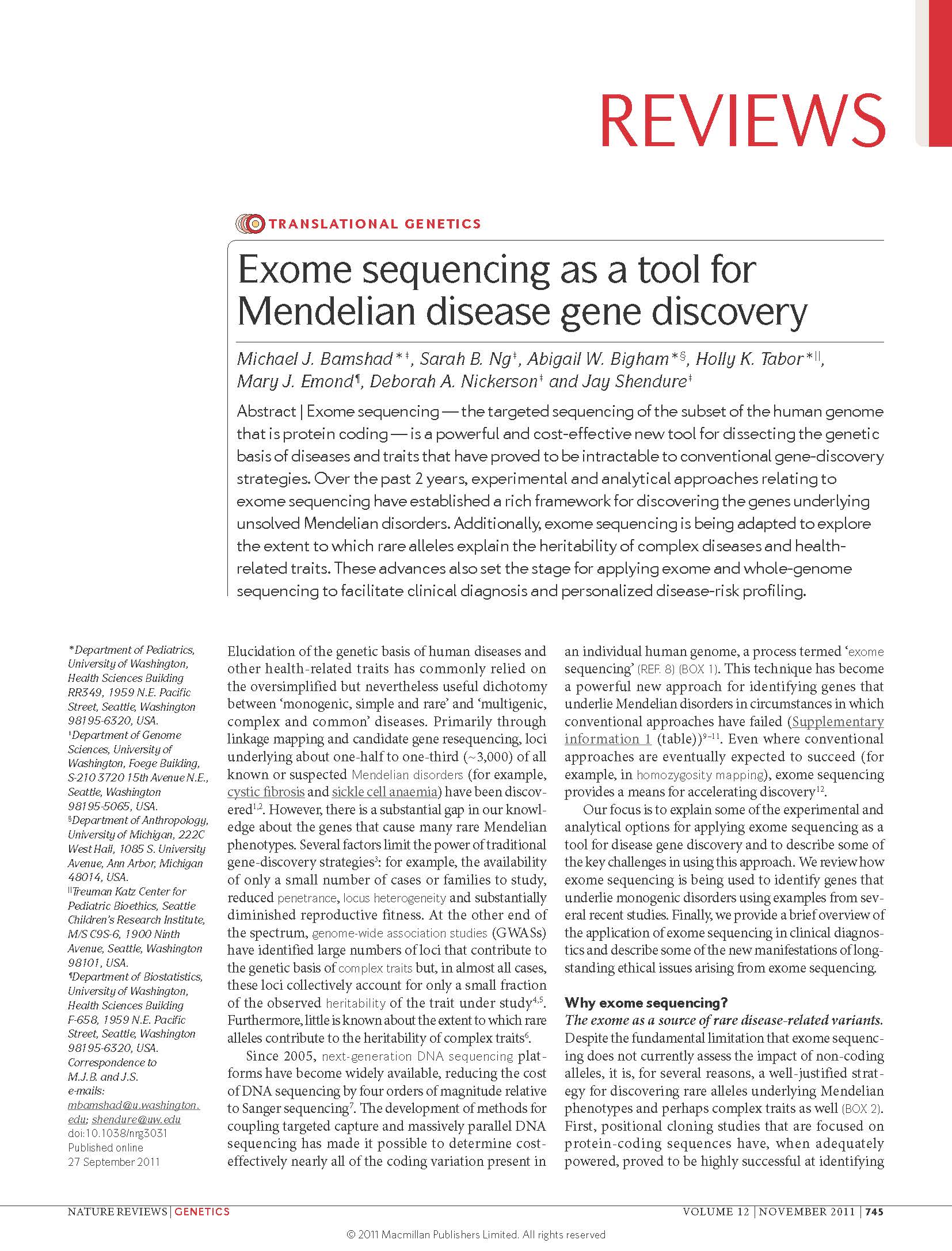
Bamshad et al. Exome sequencing as a tool for Mendelian disease gene discovery. Nature Reviews Genetics (2011)
PMID: 21946919
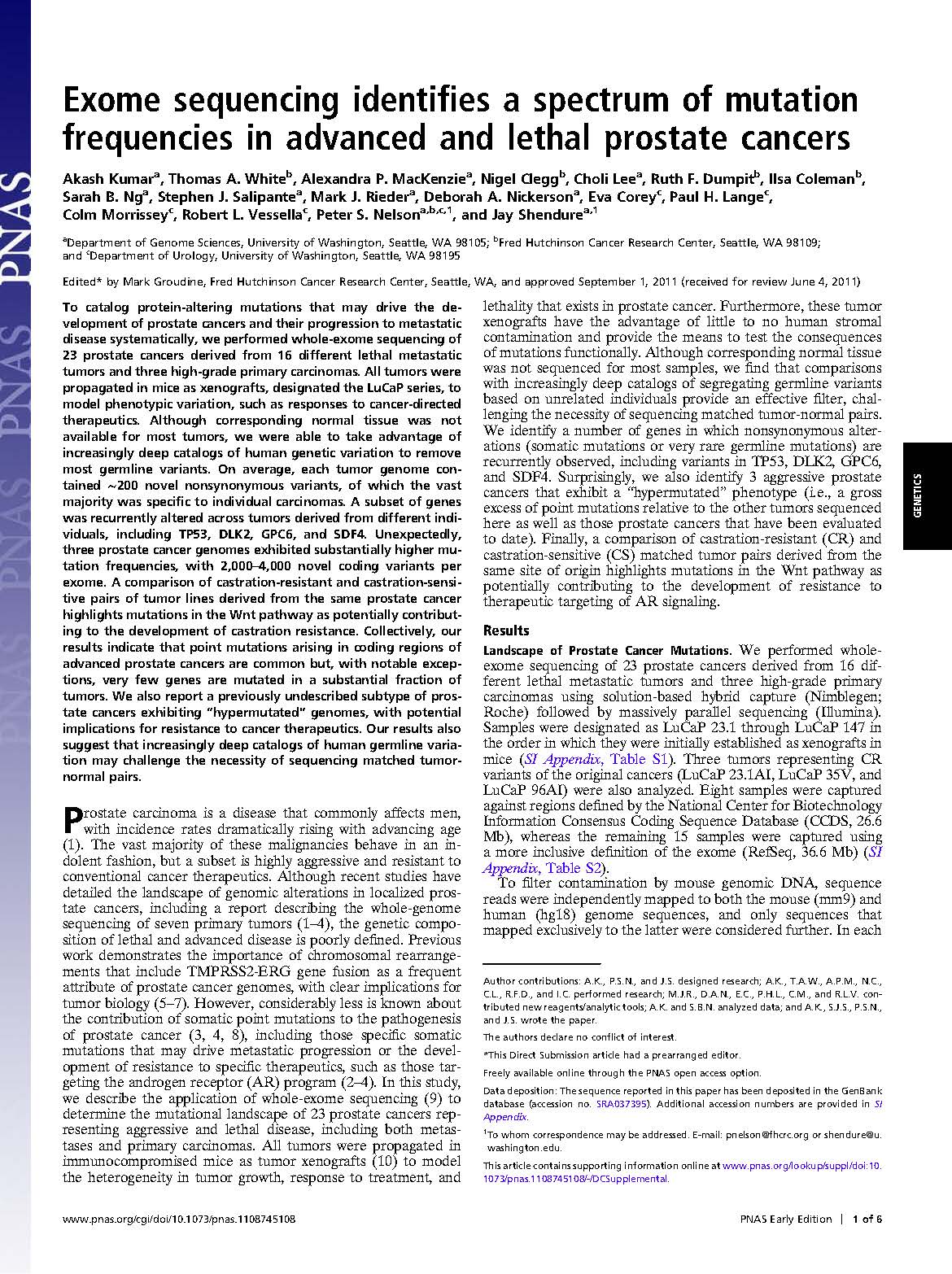
Kumar et al. Exome sequencing identifies a spectrum of mutation frequencies in advanced and lethal prostate cancers. PNAS (2011)
PMID: 21949389
(with Nelson Lab)
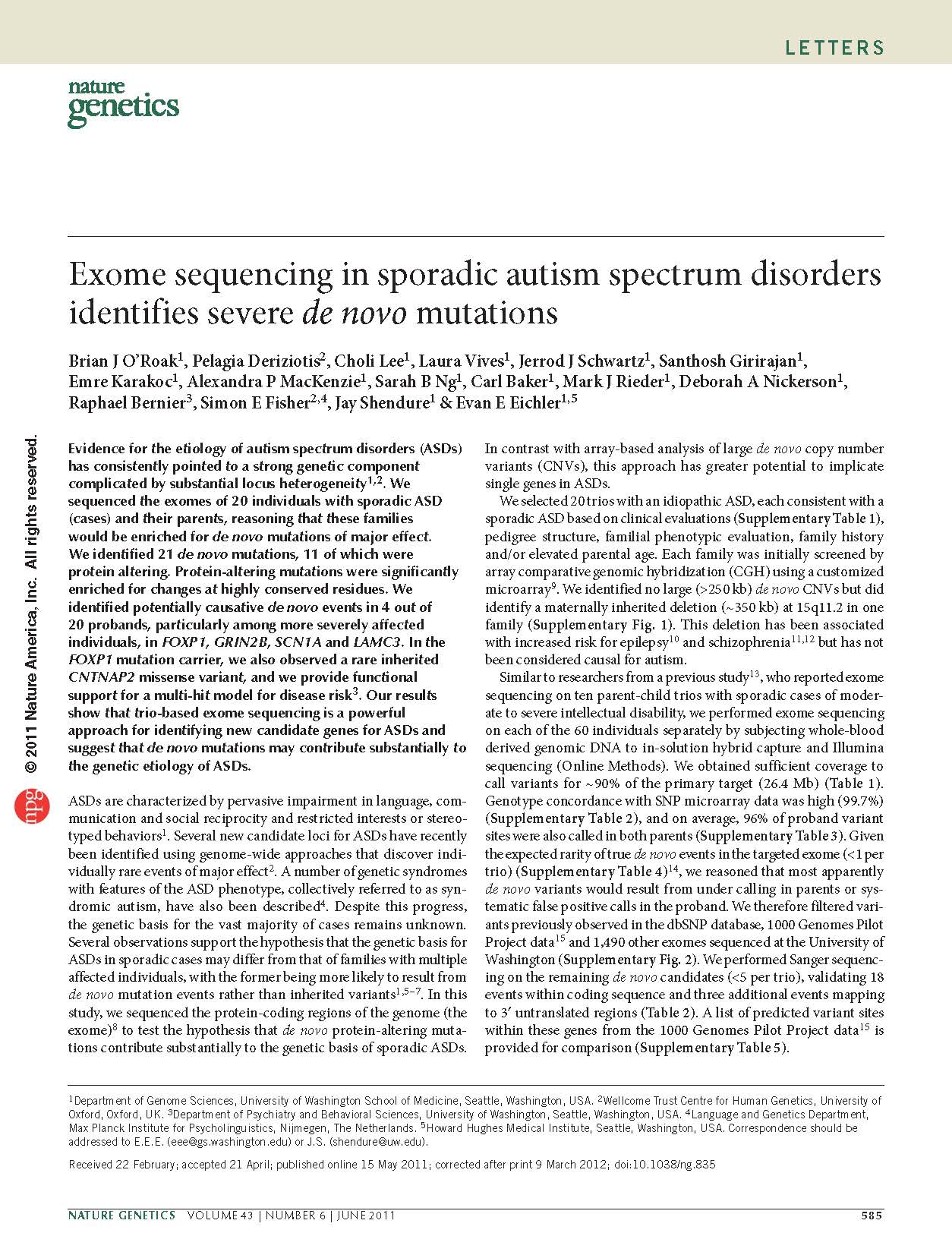
O'Roak et al. Exome sequencing in sporadic autism spectrum disorders identifies severe de novo mutations. Nature Genetics (2011)
PMID: 21572417
(with Eichler Lab)
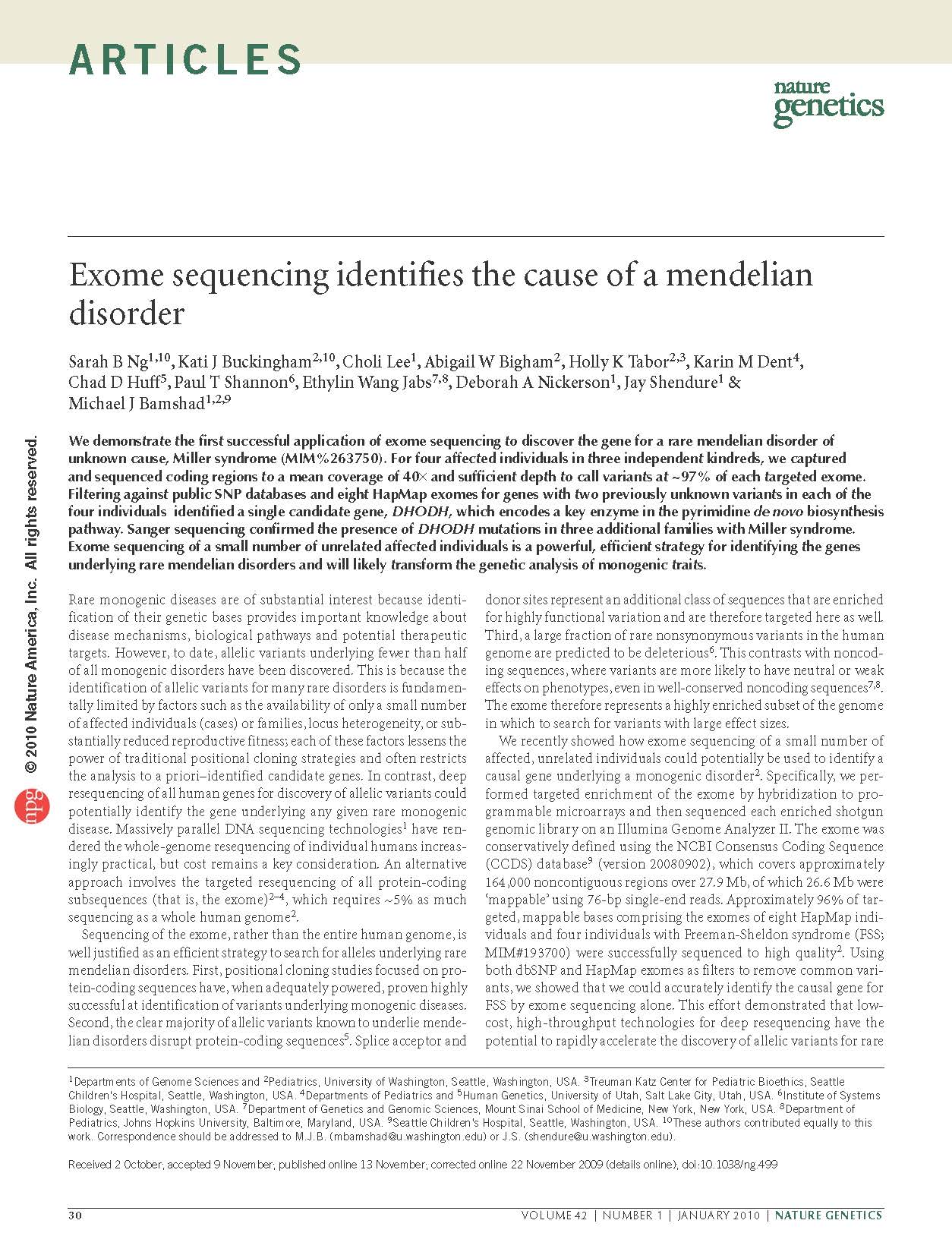
Ng, Bigham et al. Exome sequencing identifies the cause of a mendelian disorder. Nature Genetics (2010)
PMID: 19915526
(with Bamshad Lab)
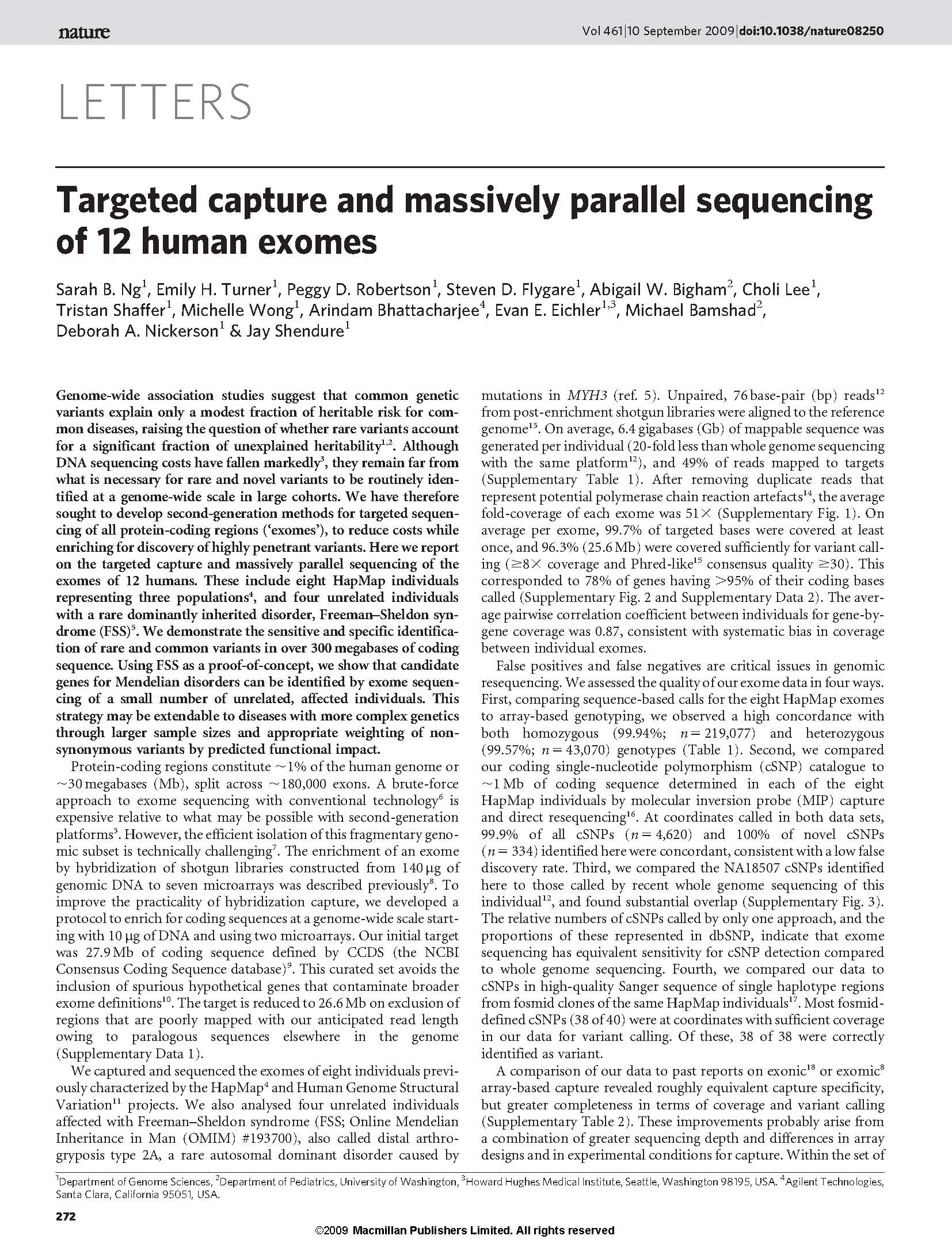
Ng et al. Targeted capture and massively parallel sequencing of 12 human exomes. Nature (2009)
PMID: 19684571
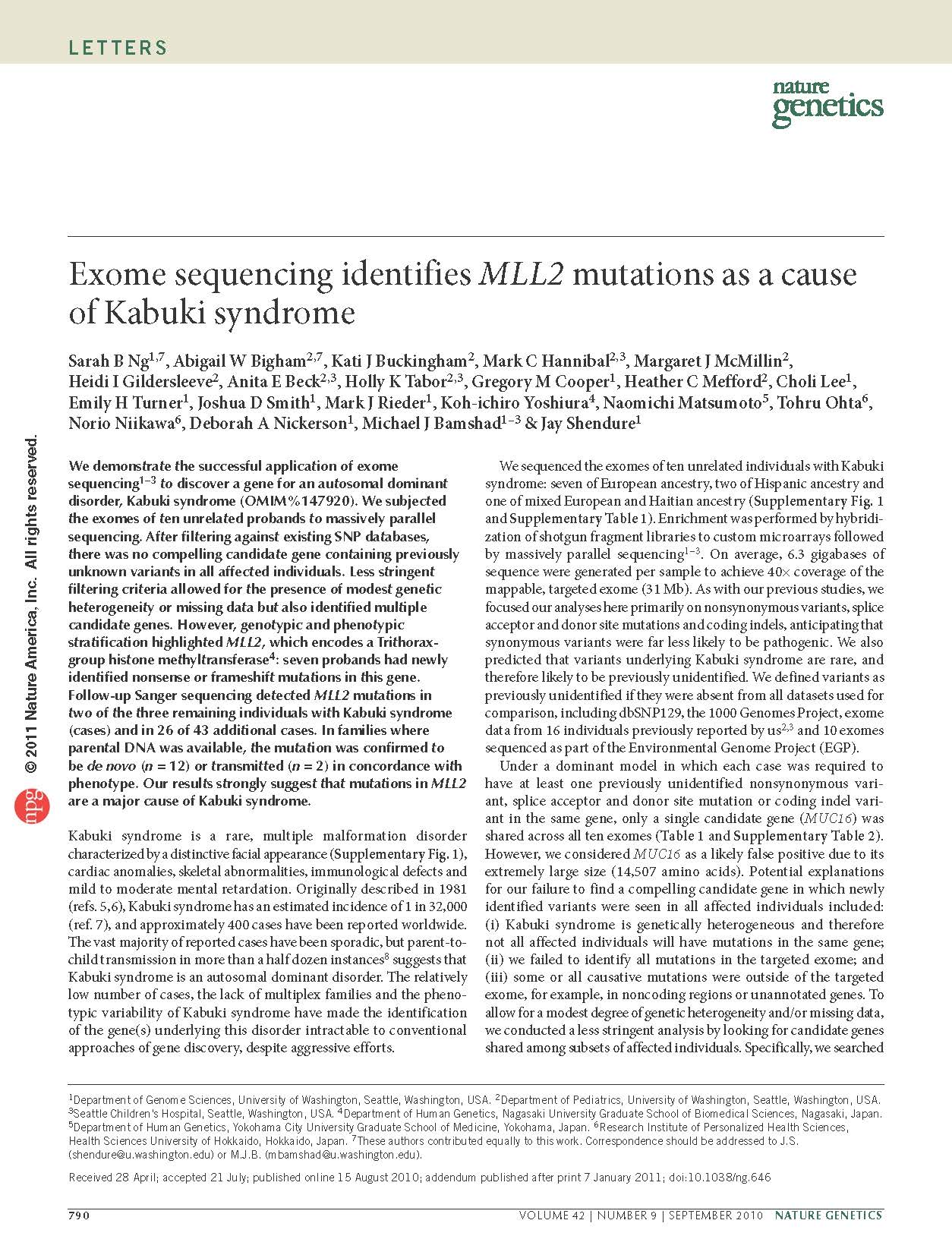
Ng, Bigham et al. Exome sequencing identifies MLL2 mutations as a cause of Kabuki syndrome. Nature Genetics (2010)
PMID: 20711175
(with Bamshad Lab)

